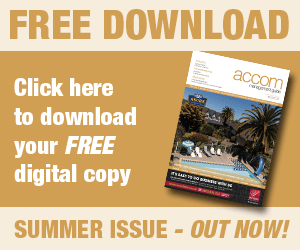Karamea Farm Baches and Rongo Backpackers & Gallery
- Details
- Published Date
Karamea Farm Baches and Rongo Backpackers & Gallery enjoy what is probably one of the most isolated and peaceful settings of any accommodation facilities in New Zealand, with the location underpinning the owners' philosophy and focus for their business – sustainability.
"We are working towards complete sustainability with our accommodation business," says Paul Murray, who runs the business with his Japanese wife, Sanae.
"The isolation of our property, 100 kilometres from Westport, lends itself to self-sufficiency and developing an efficient environmentally, socially and economically sustainable business. And with this as our goal, we are involved in bringing together elements of art, permaculture, travel and education as part of the LivinginPeace Project."
The LivinginPeace Project includes Rongo Backpackers & Gallery, Karamea Farm Baches, Karamea Radio and Karamea Connections, a regional transport service.
Paul and Sanae decided to become part of New Zealand's thriving tourist industry in 2004, when they purchased Karamea Farm Baches, one of the first tourist accommodation facilities in Karamea. The baches offer no-frills, reasonably priced, holiday accommodation in the style of a classic Kiwi bach. They are located on a small farm close to the Karamea River, estuary and beach and are about 200 metres from the historic Karamea Village Hotel.
"The complex has a quaint retro-'70s Kiwiana charm and has the nostalgic appeal of a trip to grandma's house," says Paul. "It's not The Ritz and we don't claim that it is. However, a break at the baches has all the benefits of a holiday at the family bach, without the need to spend time fixing the roof, weeding the garden, mowing the lawn, cleaning the birds' nests out of the chimneys etc.
"Mum can also relax as most of her work has been done. The beds are made, the rooms are clean and tidy, and the kitchen is fully functional so she can have a relaxing holiday instead of doing a lot of what she does at home. It's a family bach, but without the hassle and expense of repairs and maintenance – a serviced bach."
When setting up the baches, formerly the Karamea Motels, Paul saw the agro-tourism potential from incorporating the couple's farm into the motel complex.
"The proximity of the property to the Karamea River, estuary and beach, and to my house, presented the opportunity to expand into a different sector of the travel market (other than backpackers) so we could comfortably accommodate any visitor to Karamea."
Rongo Backpackers & Gallery was formally a maternity hospital and Paul says that as a result of babies having been born there, the building has a lovely air and atmosphere.
"It's a solid building set on 0.3 hectares of lovely landscaped ground, and it has been developed with the help of hundreds of volunteers (wwoofers) from all over the world who have transformed it from a run-down building six years ago into a colourful, vibrant centre for artistic excellence, creativity, peace and harmony," Paul says.
The Karamea Farm Baches offer 11 self-contained one and two-bedroom baches and Rongo Backpackers can accommodate 22 people in dorm, share, twin and double rooms. At present, 90 per cent of the guests staying in the backpackers' accommodation are international visitors, mostly from the Northern hemisphere, with the other 10 per cent being New Zealanders, while 90 per cent of the guests in the Karamea Farm Baches are New Zealanders and 10 per cent overseas visitors.
"Our main customers in the baches are New Zealand families and retired couples, but increasingly, international travellers are finding us and coming to experience Kiwi style. Plus, every fourth night is free in both facilities, so that's an incentive," says Paul. "This also gives people an opportunity to explore the region and get an appreciation for the quality of the tourist experience on offer here.
"Fourth night free is also an eco-tourism concept in which we reduce the amount of water, electricity, washing detergent, labour and cleaning products we use by 75 per cent (as opposed to cleaning the rooms and doing the laundry daily for single-night stays) and improve the longevity of the linen, towels and laundry equipment in the process."
Paul and Sanae's plans include the establishment of a permaculture education centre offering permaculture design courses, workshops and practical demonstrations, internships etc. in the winter months.
"This aims to address the seasonality of the tourism industry by attracting people to Karamea when the accommodation facilities are not being utilised," says Paul. "The long-term objective is to grow sufficient food to prepare fresh, nutritious, locally grown organic meals for our guests and staff every day.
"A restaurant/conference facility is planned for the farm and tours will show guests where and how their food has been grown. In the evening, dinner made exclusively from food grown on the farm will be served and guests will be able to enjoy the meal in the restaurant looking out over the farm where their food was grown."
Contributing to the eco-tourism concept and the environmental goals of the business, a 31-hectare regenerating bush property provides a carbon offset for the emissions associated with the day-to-day operations.
"Flying to New Zealand from Europe, Asia and America and other parts of the world incurs a carbon cost that we must take responsibility for," says Paul. "To counter this, we keep the bush block as a carbon sink to absorb the carbon we produce in our business. We also plan to build a simple camp ground on the property so visitors can enjoy an experience not possible in many parts of the world."
As Karamea becomes an increasingly popular destination for both domestic and international travellers, the LivinginPeace Project aims to provide them with a comprehensive, vibrant, educational and memorable travel experience, with the Karamea Farm Baches and Rongo Backpackers Hostel playing a key role.


